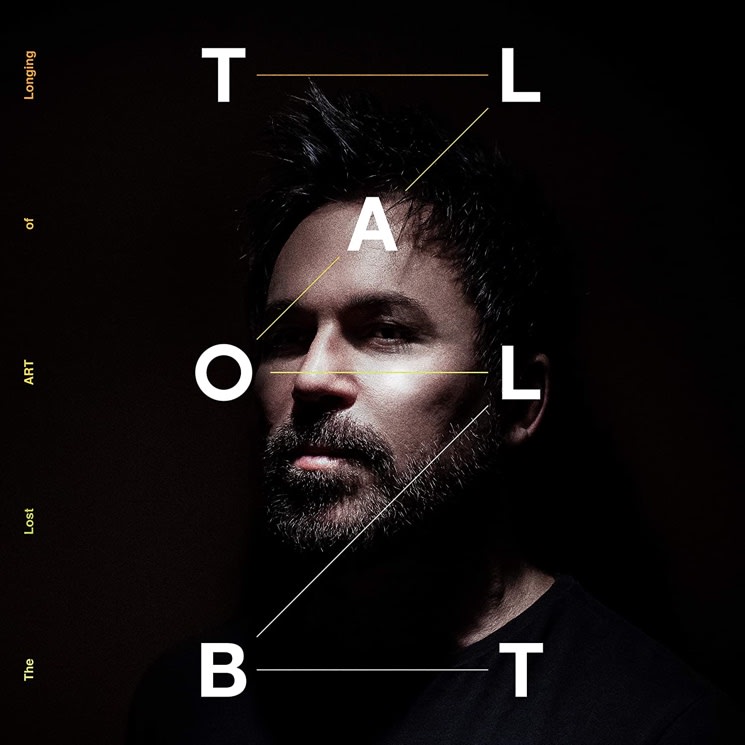Few trance artists have crossed over into mainstream professional respectability as thoroughly as BT (Brian Transeau). Movie and videogame soundtracks, audio plugins (his patented "stutter edit" technique can be heard in Star Wars, apparently), soundscapes for Tomorrowland at Shanghai Disney — it's a varied and impressive résumé.
Once upon a time he released seminal trance albums as well — every trance head back in the day had a copy of 1997's ESCM, for instance (which, along with Paul Oakenfold's Tranceport and Paul Van Dyk's Seven Ways, formed something of a turn-of-the-century triad of trance). His follow-up, 2000's Movement in Still Life, was a masterclass in crossover appeal, sitting next to Moby and Fatboy Slim in the newly created 'electronica' collections of people who'd never even heard of trance. Latter-day albums followed, but other projects beckoned, and now his latest, 2020's The Lost Art of Longing, has been billed as the American artist's long-awaited return to trance proper after more than a decade.
A lot has happened during that time — the old euphoric trance vibes he once trafficked in having transitioned into the more subdued progressive trance styles of today for one, and, skilled as he is, BT dabbles in progressive here and there on The Lost Art of Longing with solid results. This kind of effortless versatility has been a hallmark of his style for a while now, and in that regard, his latest is a real tour de force, with Transeau seemingly putting every sound design technique he's learned over the years to use.
While dazzling from a technical standpoint, it does give the album an overworked feel (another BT hallmark), with the production sounding flat and attenuated at times to make room for the epic scale on display — a sound where you're just as likely to hear orchestral strings at any second as you are rock drums, dubstep wobbles or tropical soundscapes.
It's all handled so nimbly and exuberantly that it's hard to find too much fault however, and, for every inessential diversion, there's another that's wholly worthwhile (the cool and unexpected slap-bass interlude of "I Will Be Yours" for instance). He still has a tendency to overuse his vocalists, repeating the same trite phrases over and over, and his epic runtimes don't always justify their lengths, but no one shoots for the stars quite like BT, and long-time fans have likely come to terms with his signature brand of overblown pretentiousness long ago. There is excess here, but also expertise.
(Black Hole)Once upon a time he released seminal trance albums as well — every trance head back in the day had a copy of 1997's ESCM, for instance (which, along with Paul Oakenfold's Tranceport and Paul Van Dyk's Seven Ways, formed something of a turn-of-the-century triad of trance). His follow-up, 2000's Movement in Still Life, was a masterclass in crossover appeal, sitting next to Moby and Fatboy Slim in the newly created 'electronica' collections of people who'd never even heard of trance. Latter-day albums followed, but other projects beckoned, and now his latest, 2020's The Lost Art of Longing, has been billed as the American artist's long-awaited return to trance proper after more than a decade.
A lot has happened during that time — the old euphoric trance vibes he once trafficked in having transitioned into the more subdued progressive trance styles of today for one, and, skilled as he is, BT dabbles in progressive here and there on The Lost Art of Longing with solid results. This kind of effortless versatility has been a hallmark of his style for a while now, and in that regard, his latest is a real tour de force, with Transeau seemingly putting every sound design technique he's learned over the years to use.
While dazzling from a technical standpoint, it does give the album an overworked feel (another BT hallmark), with the production sounding flat and attenuated at times to make room for the epic scale on display — a sound where you're just as likely to hear orchestral strings at any second as you are rock drums, dubstep wobbles or tropical soundscapes.
It's all handled so nimbly and exuberantly that it's hard to find too much fault however, and, for every inessential diversion, there's another that's wholly worthwhile (the cool and unexpected slap-bass interlude of "I Will Be Yours" for instance). He still has a tendency to overuse his vocalists, repeating the same trite phrases over and over, and his epic runtimes don't always justify their lengths, but no one shoots for the stars quite like BT, and long-time fans have likely come to terms with his signature brand of overblown pretentiousness long ago. There is excess here, but also expertise.
